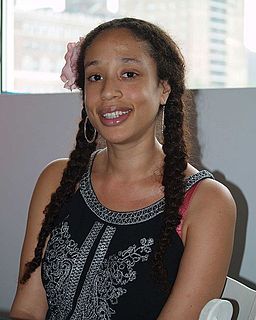A Quote by Dominic Cummings
Most political operations - and government - don't try to be rigorous about decision-making or force themselves to think about what they know with what confidence. They are dominated by seniority, not evidence.
Related Quotes
John Kerry presented his confidence and his convictions. It's not about confidence, it's about evidence. The Russians have completely opposite evidence that the missiles were thrown from an area where the rebels control. This reminds me - what Kerry said - about the big lie that Collin Powell said in front of the world on satellites about the WMD in Iraq before going to war. He said "this is our evidence."
What I learned from my work as a physician is that even with the most complicated patients, the most complicated problems, you've got to look hard to find every piece of data and evidence that you can to improve your decision-making. Medicine has taught me to be very much evidence-based and data-driven in making decisions.
In college, in the early 1950s, I began to learn a little about how science works, the secrets of its great success, how rigorous the standards of evidence must be if we are really to know something is true, how many false starts and dead ends have plagued human thinking, how our biases can colour our interpretation of evidence, and how often belief systems widely held and supported by the political, religious and academic hierarchies turn out to be not just slightly in error, but grotesquely wrong.
Studies of decision-making in the monkey, where activity of single neurons in parietal cortex is recorded, you can see a lot about the time-accuracy trade-off in the monkey's decision, and you can see from the neuron's activity at what point in his accumulation of evidence he makes his decision to make a particular movement.
I think most micro-brewers/craft-brewers are similar in that they enjoy making something themselves and at the end of the day they can enjoy the fruit of their labor. Most people really enjoy the process of making beer and like the industry as a whole. We often are passionate about what we do and enjoy talking to people about the art and science of making beer.
When the Founders thought of democracy, they saw democracy in the political sphere - a sphere strictly limited by the Constitution's well-defined and enumerated powers given the federal government. Substituting democratic decision making for what should be private decision making is nothing less than tyranny dressed up.
There are people with an explicit political bent complaining about people having political agendas while nominating stories with political agendas. Is it political to try to be diverse? Is it political to try to imagine a non-heteronormative society? Yes, because it involves politics. But how do they expect us to not write about our lives?




































